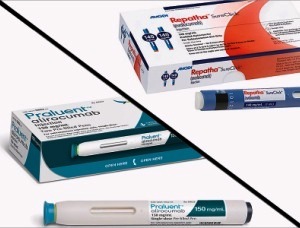Cigna Corp., based in Bloomfield, Connecticut, recently raised the bar in pharmaceutical incentives by entering into agreements with two major suppliers that calibrate costs according to patient response, directly linking fiscal conditions to improved outcomes.
Partnering in a first-of-its-kind prototype — with Amgen of Thousand Oaks, California and Sanofi/Regeneron of Paris and Tarrytown, New York — Cigna is the first health care organization to strike value-based agreements for commercial products with the companies for Repatha and Praluent, both PCSK9 inhibitors, or medications intended to control “bad” (LDL-C) cholesterol.
While the two vendor contracts are separate, they represent the same goal. Essentially, if Cigna patients fail to experience significant expected improvement with the prescription medications, Amgen and Sanofi/Regeneron will follow through by lowering the prices. If the drug treatment reaches or tops the levels hoped for, the original costs will stay as they are.
“Pharmaceutical advances hold great promise for improving the health of Cigna’s customers, and outcomes-based agreements help ensure that this promise is delivered,” Christopher Bradbury, SVP for integrated clinical and specialty drug solutions for Cigna Pharmacy Management, said. “Innovating through the contracting approach is one way we are helping our customers and clients receive more value for their health care dollar.”
Advantages extend beyond the purely monetary, as Cigna will be able to tally health improvements via cardiovascular tracking measurements.
In addition to the cholesterol inhibitor trial, Cigna, which places a high value on customer education and engagement, has contractual agreements with drug firms focused on battling heart failure, diabetes, multiple sclerosis, and hepatitis C.









 Alerts Sign-up
Alerts Sign-up